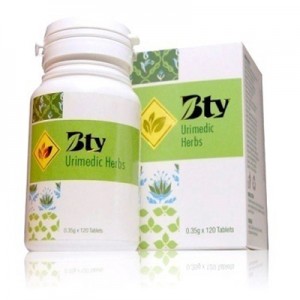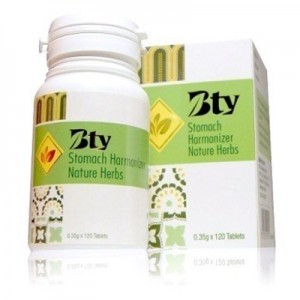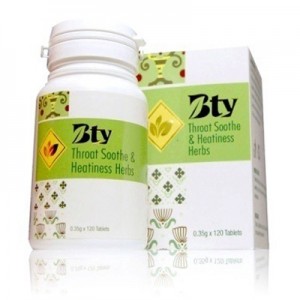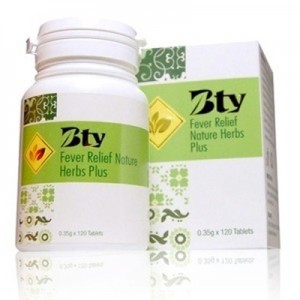Orally, 3 tablets once for adult, 3 times daily, to be taken with warm water
Woman Essential Chinese Herbs
1 × RM 45.00
Indication: Traditionally used for dispelling wind and improving blood circulation. Symptoms: soreness, and pain around waist and knee areas.
Orally, 3 tablets once for adult, 3 times daily, to be taken with warm water
Radix Angelicae pubescentis(30mg), Radix Codonopsis pilosulae(20.5mg), Radix Achyranthis bidentatae(19.5mg), Radix Glycyrrhizae uralensis(20.5mg), Ramulus Cinnamomum cassia(19.5mg), Radix Angelicae sinensis(20.5mg), Radix Gentianae macrophyllae(19.5mg), Radix Paeoniae alba(20.5mg), Poria cocos(19.5mg), Cortex Eucommia ulmoides(19.5mg), Cortex Cinnamomum cassia(20.5mg), Herba Taxillus chinensis(19.5mg), Radix Saposhnikovia divaricata(20.5mg), Radix Rehmanniae praeparata(20.5mg), Rhizoma Ligusticum chuanxiong(19.5mg)
RM 43.00

In modern medicine, majority of the preliminary data lend support to its use in osteoporosis, arthritis, hypertension with purported actions such as anti-oxidant and anti-inflammatory properties. From the long historical usage of over 2000 years and numerous preclinical and clinical studies, Eucommia ulmoides proves to be safe and non-toxic.

Promoting blood circulation and the flow of qi and eliminating wind to relieve pain.

This herb is used by herbalists for the female reproductive system, as they believe that it is a uterine tonic and hormonal regulator. It is often used in premenstrual syndrome formulas as well as menopausal formulas. However, this herb is not recommended during pregnancy due to possible hormonal, anticoagulant, and antiplatelet properties.

Orally, cassia cinnamon is used for type 2 diabetes, gas (flatulence), muscle and gastrointestinal spasms, preventing nausea and vomiting, diarrhea, infections, the common cold, and loss of appetite. It is also used for impotence, enuresis, rheumatic conditions, testicle hernia, menopausal symptoms, amenorrhea, and as an abortifacient. Cassia cinnamon is also used orally for angina, kidney disorders, hypertension, cramps, cancer, and as a blood purifier.
Topically, cassia cinnamon is used in suntan lotions, nasal sprays, mouthwashes, gargles, toothpaste, and as a counterirritant in liniments. In food and beverages, cassia cinnamon is used as a flavoring agent.

To replenish the liver and the kidney, to strengthen the tendons and bones, to relieve rheumatic conditions, and to prevent abortion.

Reinforcing the spleen, tonifying the lung, nourishing blood and promoting the production of the body fluid

Analgesia, calm, lower the blood sugar, and lower the blood fat.

Expelling pathogenic wind, dampness, cold and relieving pain

Tonifies the Blood: used for Deficient Blood patterns with such symptoms as a pallid face, dizziness, palpitations and insomnia. Also used for irregular menstruation, uterine bleeding, and postpartum bleeding. Nourishes the Yin: used for Deficient Kidney Yin, with such manifestations as night sweats, nocturnal emissions, Steaming Bone syndrome, and Wasting and Thirsting syndrome.

Promoting blood circulation and restoring menstruation, conducting downward flow of heat, inducing diuresis to treat strangury, and tonifying the liver and kidney

(1) Radix Saposhnikovia divaricata (2) Rresolving dampness and arresting soreness (3) Dispelling wind and arresting convulsion

Tonifies the Spleen; Benefits the Qi; Moistens the Lungs; Calms cough; Calms deaf or acute pain; Regulates the nature of other drugs

To supplement body fire, reinforce yang, and lead the fire back to the kidney, to dispel cold and relieve pain, and to activate blood circulation and stimulate menstrual discharge.

Radix Gentianae Macrophyllae can be used for arthralgia, joint pain, and muscle spasm of limbs caused by wind cold.

Poria has been used for its immunological, antitumor, diuretic, anti-inflammatory, anti-emetic, and CNS effects
| Weight | 100 g |
|---|








